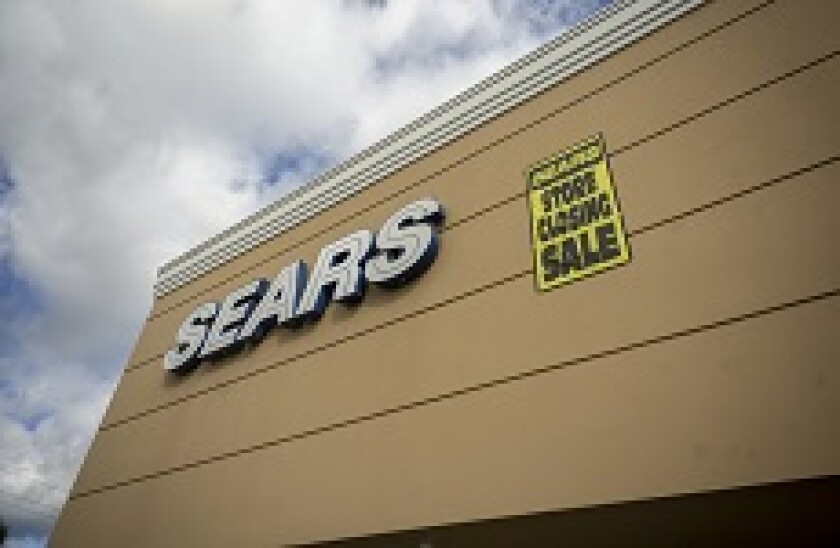The most recent example is Sears Roebuck Acceptance Corp, a subsidiary of department store Sears Roebuck that issued medium-term notes (MTNs). Sears Roebuck auctioned some of the MTNs last year, causing a mad scramble from buyers and sellers of Sears Roebuck Acceptance Corp CDS to buy them up, seemingly to influence the auction that sets the CDS payout.
Various publications reported that Cyrus Capital Partners, which had sold CDS on the Sears subsidiary, bought the notes to keep them away from the auction, potentially pushing up prices of the deliverables and thus reducing the payout to CDS buyers.
Some anonymous counterparties complained to the determinations committee responsible for auction, asking for terms governing the auction to be changed to prevent settlement that does not properly reflect the value of the debt. Last week, these attempts were rebuffed.
One partner at a law firm told GlobalCapital that he did not have much sympathy for Cyrus’ counterparties, arguing that being left “exposed” is a commercial risk they knew about
“In order to mitigate their risks, they could have, for example, expanded the list of deliverable reference obligations under the original CDS or identified a different Sears group entity within the capital structure, both of which could have deepened the liquidity of bonds available to settle the CDS,” he said.
In other words, a contract is a contract and buyer beware. From a legal perspective, this is probably correct. But it seems wrong that as a smaller buyer or seller of CDS, the quality of your hedge or bet is dependent on how successful large financial institutions are at influencing the amount (or quality) of deliverables that make it to an auction.
A more egregious case was that of Blackstone subsidiary GSO, which tried to engineer a deal with homebuilder Hovnanian that would see the company deliberately default on some of its debt.
This, in theory, would have triggered a favourable payout on CDS bought by GSO, in part thanks to notes issued by Hovnanian to GSO, which were allegedly designed to inflate the value of CDS protection.
The plan did not go ahead after GSO settled with Solus Alternative Asset Management in court. The latter sued GSO alleging fraud, adding that the deal may have “irrevocably” distorted the market for CDS on Hovnanian.
Following the controversy, industry body International Swaps and Derivatives Association (ISDA) and the US Commodity Futures Trading Commission, spoke out against so-called “manufactured” or “narrowly tailored” credit events. ISDA has said it is working towards a market solution to solve the issue.
But the real problem here is not necessarily that a default may have been manufactured. If the company is financially healthy, and investors expect its bonds will be paid off in the end, the debt instruments will be trading close to par during the CDS auction. This does not result in much profit, if any, for CDS buyers, and is probably a waste of everyone’s time.
Solus alleged during the court case that a special debt instrument issued by Hovnanian to GSO, yielding 5% with a 22 year duration, was specifically designed as a “rigged bond” to be deliverable during the CDS auction. Since it was a relatively low yielding bond with a very long maturity, its market value compared to its face value would be very different, potentially leading to a massive payout to CDS buyers.
When doing any kind of deal in wholesale financial markets, one ought to model in somewhat unexpected outcomes, or at least, hedge funds playing hardball and pushing the documents to their limits. But this will come with a cost. Market participants will have to ask themselves how much “CDS weirdness” is worth — while an increasing number of these situations risks limiting the product to large players that can play hardball to protect their positions, and potentially diminishing CDS as an effective hedge or directional bet.
ISDA is working with the industry to fix loopholes exposed during the Hovnanian case, and is understood to be honing in on both manufactured credit events and on the creation of artificially cheap debt to affect CDS settlement. However, it is unclear exactly how the industry will move to fix the issue, given that changing the rules too much could potentially result in new unforeseen consequences.
And while the example of Sears Roebuck may not have attracted much criticism, it is emblematic of a market that increasingly seems to be governed by weird loopholes and behind the scenes posturing by large financial institutions.
Any moves to rip up a market built up over many years, with several successive revisions and corrections, need to go carefully. But it is a good idea to start at least asking if the product is fit for purpose.

